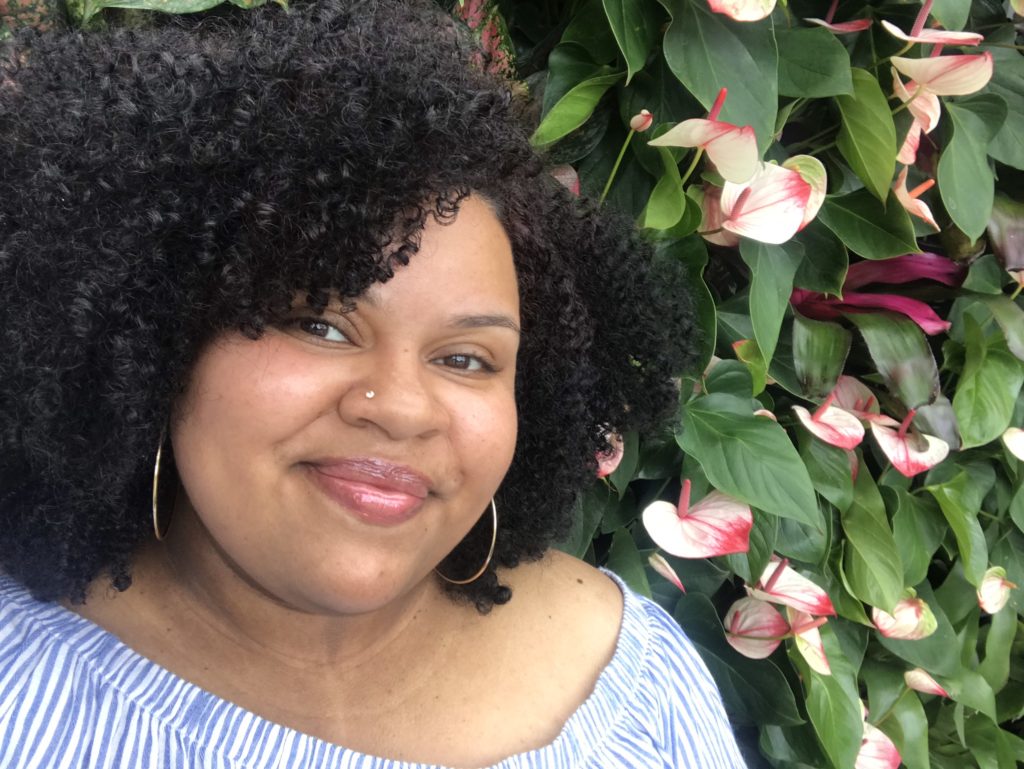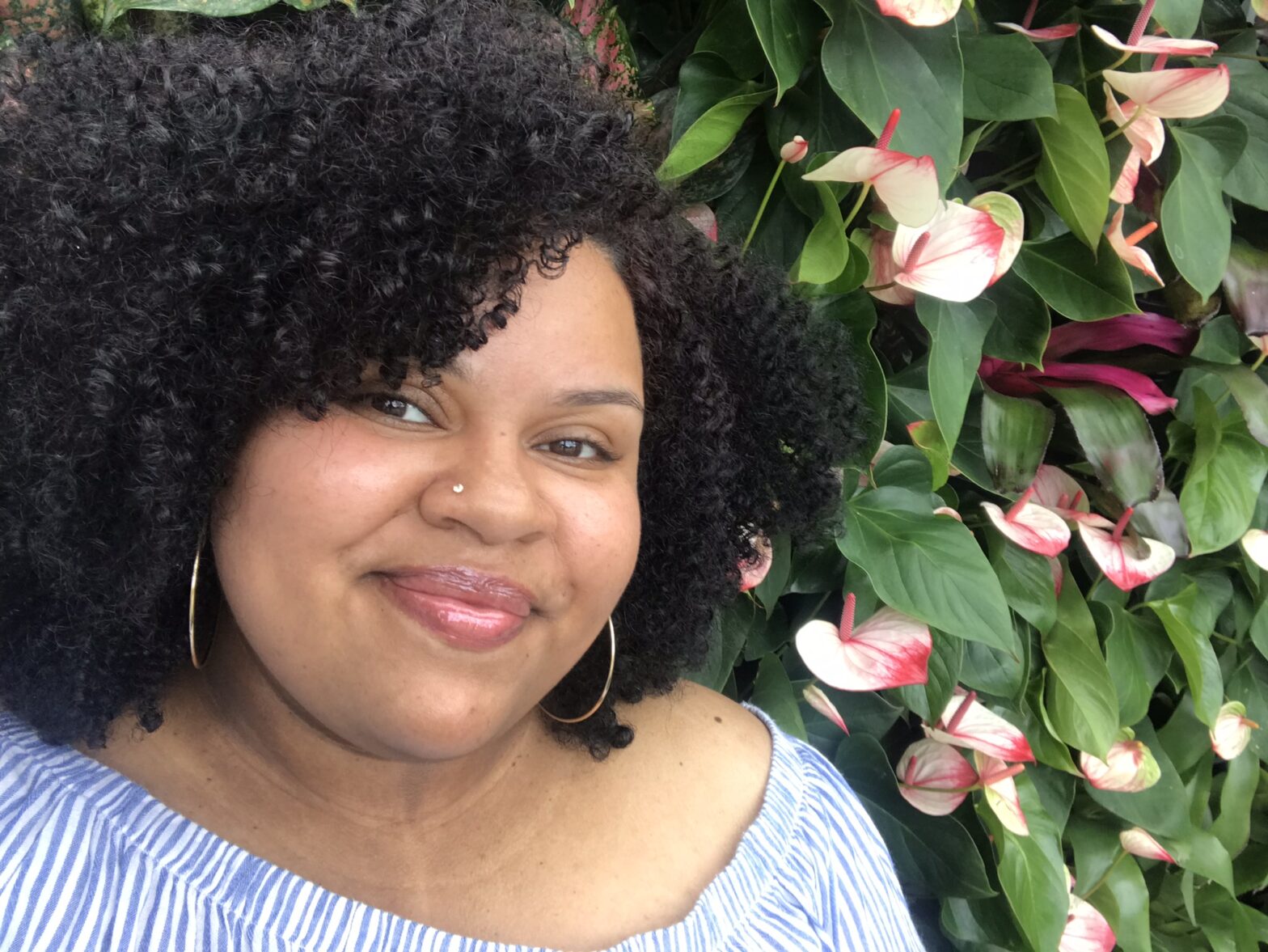A conversation with Charina Herrera in Rhode Island
Name and Role with GC
Charina Herrera, DC at Nathanael Greene Middle School, 8th grade classes.
Tell me a little bit about your background and where you’re from.
I grew up in Providence, in the Washington Park neighborhood, and I think it was a nice place to grow up. I think it still is primarily a Dominican neighborhood, mostly immigrants. It was a community where a lot of people knew each other. I grew up going to the library and things like that. I wanted to learn so much. I spent a lot of time at the park, because it was right across the street. Also, when I was younger, I spent a little time in the Dominican Republic. I remember it being so different at the school there – strict with uniforms, singing the national anthem every day. But that was when I was younger.

I am a senior at Rhode Island College, majoring in Africana Studies. Initially, I wanted to go into sociology. Then I was looking at the world and seeing injustice. Noticing that people of my skin color are bearing the brunt – the worst of the worst. So I took an Intro to Africana Studies class, and from there it was like, “it’s a wrap” – this is what I want to study. It’s opened so many doors for me and it’s done a lot for me mentally. I think black studies should be implemented in everyone’s curriculum. I would be a different person if I didn’t major in Africana Studies. It’s a huge part of my life. It’s changed me a lot.
Now that you’ve had a chance to revisit your former school, what are some of your impressions of that experience?
It’s been a little surreal. It seems pretty much the same to me; I saw a lot of familiar faces. It was cool because the first teacher that I saw was my Spanish teacher, and she remembered me and gave me a big hug. That was comforting because I was feeling a little nervous. It’s weird coming back to school as an adult. Everything seems so big when you’re a kid, and now suddenly it seems small.
I was mostly interested in seeing what the students were up to — I know there’s been a conscious shift since I left, so I wanted to see how their paradigms have changed. What I noticed is that more and more over the years youth are participating more in the political sphere, and they’re more aware of social justice. When I was in middle school I wasn’t thinking about those things, but now there are a lot of middle schoolers getting involved. The age group is getting younger every year, and I wanted to see that change firsthand. I think for a long time kids weren’t given that voice and the space to express it, but now that’s changing.
What was memorable about your own educational experience?
When I went to Greene I remember there being a dichotomy between advanced or gifted and “regular” students. Even though I was in the advanced classes, I noticed that everyone thought differently about the kids who weren’t in advanced classes and treated them differently, but I thought everyone deserved the same opportunities. Teachers had low expectations of students, especially students of color. If the teacher doesn’t believe in you, how are you going to put in the effort for the class? If the teacher doesn’t care, why should you?
I want students to be seen for who they really are – their capabilities, their strengths, their personalities. I don’t want them to have a fixed mindset of what they can and can’t do when they’re so young. The truth is that students are interested in a lot of things, but they don’t always get the space to explore that. The goal should be giving those students room to be themselves.
Why did you choose to get involved with GC?
I thought it sounded like an interesting opportunity to work with students, to find out what they care about and what they want to fight for. Finally, students will be able to fight for what they want to fight for. I want to be with the students and guide them through that, and help them understand that their voice matters. It’s important to give students that space and to believe in them.
Why is civics education, youth voice, or youth empowerment important to you?
It’s important to me because youth are our future. If we don’t empower them, how are things ever going to change? For example, I go back to Greene, and everything’s the same. The same nasty food, the same bell schedule, getting up too early. How is anything going to change unless we support our youth and let their voices be heard?
Are you involved with any other community organizations, activism, special interests, etc.?
I’m a McNair scholar at RIC. It’s a program for minority students that gives us a gateway and helps us apply to grad schools. We get paid to research and get to attend conferences. The goal is to eventually have more professors of color at colleges.
How was your first day as a DC?
I was mostly trying to get the vibe of the classroom, and see how I could fit into that space without taking too much space. I sat and observed how the teacher interacted with the students to see how I could interact with the students in a different way. I noticed that students weren’t very engaged, and then I put myself in their shoes. I remember not eating breakfast, not getting good food, and that’s why they’re not participating. That’s what I’m advocating for now. It’s a little thing but it means a lot. I want to find ways to get students more engaged when so many of them have barriers to just getting to school. It’s difficult to see kids going through things like having to walk to school. I remember walking home three miles from high school and thinking, “this is the worst, I never want to do this again.” And then the issue of lunch – kids are grossed out just talking about the types of food available at school, and I remember that too. Sometimes decisions made by school districts aren’t made with the students’ best interests in mind, and that has to change.
